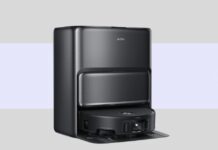Wastewater treatment is a critical aspect of environmental stewardship, ensuring that water discharged into natural bodies is free from pollutants. Effluent Treatment Plants (ETPs) and Sewage Treatment Plants (STPs) rely on various methods to efficiently treat wastewater. One such method involves the use of additives in aeration tanks. While cow dung has been considered for its coagulant and nutrient-rich properties, this article explores the potential challenges associated with its use in aeration tanks and proposes the use of Super 24 as a sustainable alternative.
Challenges of Using Cow Dung in Aeration Tanks
Variable Composition
Cow dung composition can vary widely, leading to inconsistencies in treatment efficiency. The aeration tank environment requires a stable and predictable input to maintain optimal conditions for aerobic bacteria.
Biogas Production Limitations
Aeration tanks are primarily aerobic environments, and cow dung may not be as effective for biogas production in these conditions compared to anaerobic digestion. This limitation reduces the potential for energy recovery.
Foaming Issues
The use of cow dung in aeration tanks can contribute to foaming problems. Excessive foaming interferes with oxygen transfer, affecting the biological processes and potentially causing operational disruptions.
Pathogen Concerns
Cow dung may contain harmful pathogens that pose risks to plant operators and the environment if not properly treated before introduction into the aeration tank. Ensuring the safety of workers and preventing pathogen release is crucial.
Odour Generation
Cow dung emits a strong odour, which can create an unpleasant working environment for plant operators. Odor issues may extend to the surroundings, impacting both workers and nearby residents.
Regulatory Compliance Challenges
Meeting regulatory standards for treated water quality becomes more challenging with the use of unconventional additives like cow dung. Consistent compliance with water quality standards may require additional monitoring and adjustments to the treatment process.
Introducing Super 24 As An Alternative

Super 24, a commercially available microbial product, offers a sustainable alternative to cow dung in aeration tanks. It is designed to enhance Mixed Liquor Suspended Solids (MLSS) growth, promoting the formation of flocs and facilitating the settling of solids. This alternative addresses some of the challenges associated with cow dung and provides additional benefits to the wastewater treatment process.
Benefits Of Using Super 24
MLSS Growth Enhancement
Super 24 stimulates the growth of MLSS in the aeration tank, fostering the development of a robust and active microbial community. This promotes the effective biological treatment of wastewater.
High COD and TDS Removal
The increased MLSS concentration facilitated by Super 24 enhances the treatment efficiency, leading to higher Chemical Oxygen Demand (COD) and Total Dissolved Solids (TDS) removal rates. This results in improved water quality.
Floc Formation and Settling
Super 24 aids in the formation of dense flocs, which settle more readily in the clarification stage. This contributes to improved solids-liquid separation and enhances the overall efficiency of the treatment process.
Reduced Foaming Issues
Unlike cow dung, Super 24 is formulated to minimize foaming issues in aeration tanks. This ensures optimal oxygen transfer and mitigates the risk of operational disruptions.
Consistent Performance
Super 24 offers a consistent and standardized composition, eliminating the variability associated with cow dung. This allows for predictable treatment outcomes and facilitates stable operating conditions.
Ease of Handling and Storage
Super 24 is a commercially produced and packaged product, making it easier to handle and store compared to raw cow dung. This convenience improves operational efficiency and reduces logistical challenges.
Biodegradability
Super 24 is designed to be environmentally friendly and biodegradable. Its use aligns with sustainable practices, contributing to the overall eco-friendliness of the wastewater treatment process.
Minimal Odor Impact
Unlike cow dung, Super 24 has a minimal odor impact, creating a more favorable working environment for plant operators and minimizing potential complaints from nearby residents.
Conclusion
In conclusion, while cow dung has been considered for its coagulant and nutrient-rich properties in wastewater treatment, its use in aeration tanks may present challenges that could impact the efficiency and reliability of the treatment process. The introduction of Super 24 as an alternative offers a sustainable solution with numerous benefits, including enhanced MLSS growth, improved COD and TDS removal, floc formation, and settling efficiency. Additionally, Super 24 addresses operational challenges such as foaming issues, inconsistent composition, and public perception concerns associated with cow dung. As the wastewater treatment industry continues to evolve, exploring and adopting innovative alternatives like Super 24 can contribute to more efficient, reliable, and environmentally sustainable practices.


























































